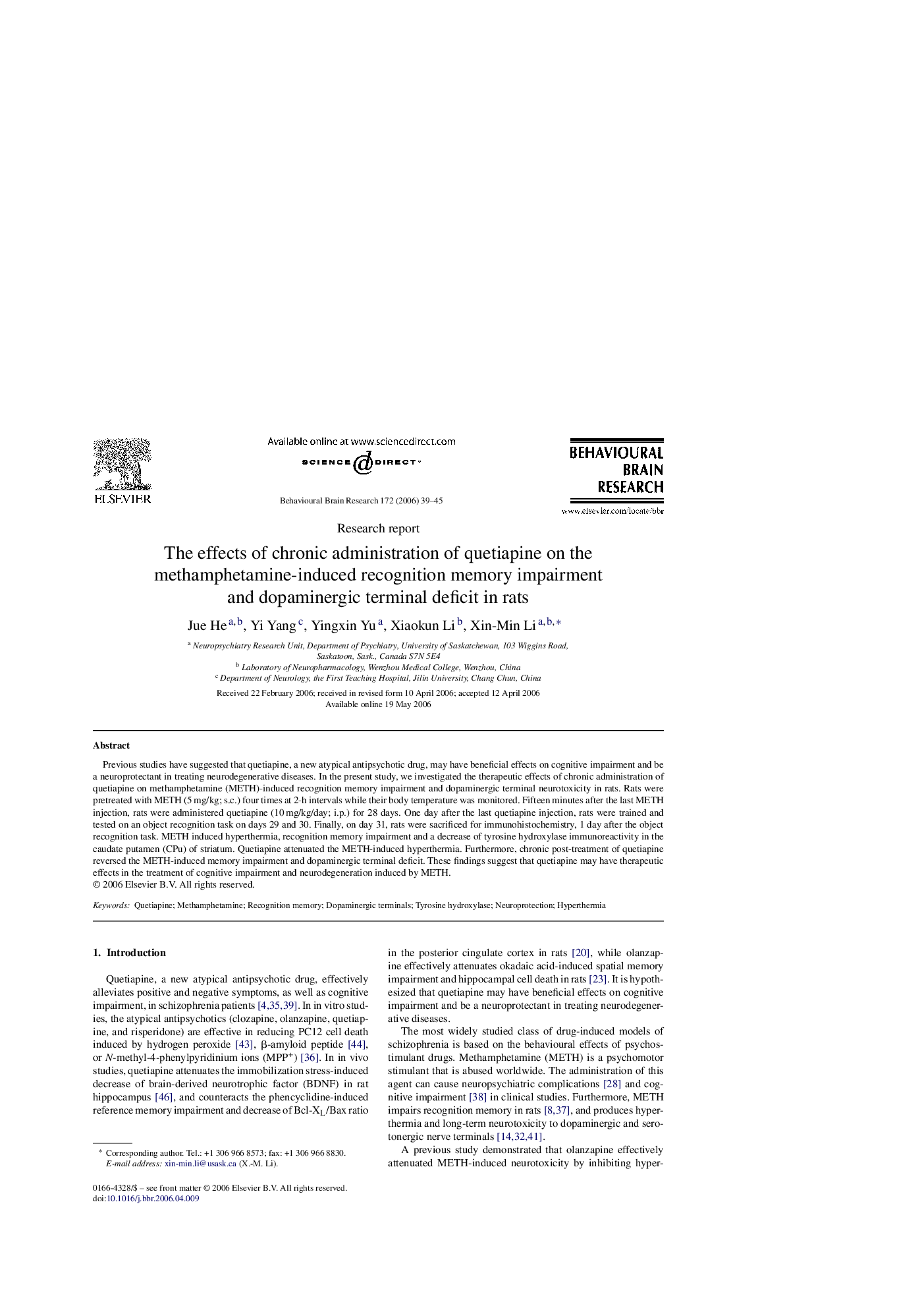| Article ID | Journal | Published Year | Pages | File Type |
|---|---|---|---|---|
| 4315954 | Behavioural Brain Research | 2006 | 7 Pages |
Previous studies have suggested that quetiapine, a new atypical antipsychotic drug, may have beneficial effects on cognitive impairment and be a neuroprotectant in treating neurodegenerative diseases. In the present study, we investigated the therapeutic effects of chronic administration of quetiapine on methamphetamine (METH)-induced recognition memory impairment and dopaminergic terminal neurotoxicity in rats. Rats were pretreated with METH (5 mg/kg; s.c.) four times at 2-h intervals while their body temperature was monitored. Fifteen minutes after the last METH injection, rats were administered quetiapine (10 mg/kg/day; i.p.) for 28 days. One day after the last quetiapine injection, rats were trained and tested on an object recognition task on days 29 and 30. Finally, on day 31, rats were sacrificed for immunohistochemistry, 1 day after the object recognition task. METH induced hyperthermia, recognition memory impairment and a decrease of tyrosine hydroxylase immunoreactivity in the caudate putamen (CPu) of striatum. Quetiapine attenuated the METH-induced hyperthermia. Furthermore, chronic post-treatment of quetiapine reversed the METH-induced memory impairment and dopaminergic terminal deficit. These findings suggest that quetiapine may have therapeutic effects in the treatment of cognitive impairment and neurodegeneration induced by METH.
